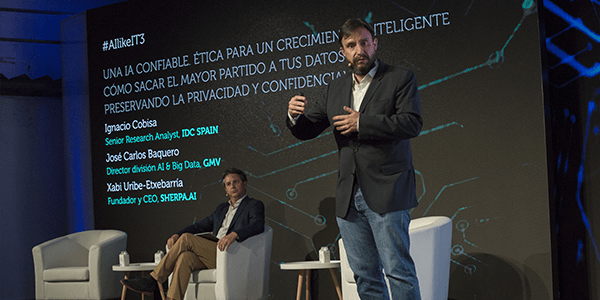The big AI-development challenges: technological, legislative, ethical and social

Carme Artigas, Secretary of State for Digitization and Artificial Intelligence, has featured at the 3rd Artificial Intelligence Encounter (Encuentro de Inteligencia Artificial) hosted by Spain’s Association of Electronics, Digital Contents and ICT Companies (Asociación de Empresas de Electrónica, Tecnologías de la Información, Telecomunicaciones y Contenidos Digitales; AMETIC. «). In her opening speech she argued that «after the health crisis and lockdown comes the economic reconstruction. Let nobody doubt that this will be a digital reconstruction. AI is no longer the future; it is the present. It is playing a key role during the pandemic and is bound to come into its own even more in the future. There is no productive sector, public or private, that can afford to turn its back on AI.» She went on «we must take advantage of the opportunities to opt for AI development and takeup in order to boost productivity, strengthen Spain’s industry and adopt a successful, people-centered approach to the present social challenges».
Artigas also stressed the need for a post-pandemic reflection on the new national strategic reserves, where Big Data and AI will be fundamental. This rethink has to be carried out at national and European level. The Secretary of State explained that there are four major challenges to AI development: technological, legislative, ethical and social. We need to ensure we are capable of developing in Spain a great AI industry that, crucially, is secure, robust, auditable and explicable.
José Carlos Baquero, Artificial Intelligence and Big Data Manager of GMV’s Secure e-Solutions sector, took part in the encounter’s debating panel on the importance of ethics and privacy to ensure AI is seen as trustworthy. In his speech he stressed how GMV’s Privacy-Enhancing Technology (PET) called uTile PET (Privacy-Enhancing Technologies) can make sure the right balance is struck between privacy and data harnessing.
GMV’s inhouse uTile development taps into confidential data to improve machine-learning algorithms and analytical models, complying at all times with organizational and data-privacy requirements and current law. All organizations can benefit from uTile (striking the right balance between privacy and data harnessing) by sharing and even monetizing in a secure way all data-based knowledge, doing so on the strength of encrypted computing, complying with the privacy of distributed data sources and facilitating secure information exchange.